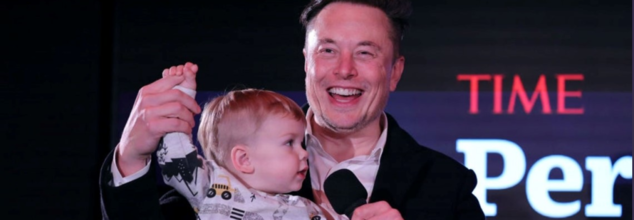
After 4 Years of Misdiagnosis, ‘The Crown’ Actress Olivia Williams Says She'll Never Be Cancer-Free; How Delayed Diagnosis Worsen Prognosis?
Best known for her powerful portrayal of Camilla Parker Bowles in The Crown and as Bruce Willis’ wife in The Sixth Sense, British actress Olivia Williams has recently made a heartbreaking revelation—she will never be “cancer-free.” Her disclosure sheds light on the devastating impact of delayed cancer diagnosis, particularly with rare cancers like pancreatic VIPoma.
In an emotionally candid interview with The Times UK, Williams, now 56, opened up about the prolonged and frustrating journey that led to her pancreatic cancer diagnosis in 2018—four years after her symptoms first began. Her story, though deeply personal, echoes a broader systemic problem that continues to affect countless lives across the globe.
Williams’ ordeal began in her early 40s with seemingly unconnected symptoms: chronic diarrhea, limb aches, and relentless fatigue. These vague signs were chalked up by different doctors to conditions like perimenopause, lupus, IBS, and even psychological stress.
“I went to about 21 doctor visits,” she said. “One doctor even referred me for a psychiatric assessment.” This type of medical gaslighting, where patients (especially women) are told their symptoms are imaginary or exaggerated, remains alarmingly common.
It wasn’t until she consulted a physician in Los Angeles that she was correctly diagnosed with a VIPoma—a rare pancreatic tumor that produces excessive vasoactive intestinal peptide, leading to severe watery diarrhea and imbalanced electrolytes. Unfortunately, by the time the tumor was found, it had metastasized to her liver.
Living with a Chronic Cancer Diagnosis
Once the tumor had spread to the liver, Williams’ prognosis shifted dramatically. “That’s the worst news in the cancer world,” she shared. She now lives with metastatic cancer and undergoes ongoing treatments like microwave ablation, which she described as “playing whack-a-mole every time they appear.”
She’s also received four rounds of Lutathera, a targeted radiotherapy treatment that involves injecting radioactive material into the body. “It’s supposed to buy me maybe a year, maybe two or three years, of freedom from treatment,” she said. “In the best-case scenario, it would have made the metastases disappear—but that didn’t happen.”
Why Pancreatic Cancer Often Goes Undetected?
Pancreatic cancer has long been dubbed a "silent killer" because its early symptoms are vague and non-specific. According to experts, only 20% of pancreatic cancer cases are caught at an operable stage. The average survival rate across all stages is just 5% after five years, a figure that has barely changed in decades.
Typical early signs—fatigue, unexplained weight loss, abdominal or back pain, jaundice—are frequently mistaken for more benign issues, delaying proper diagnosis. Williams’ experience mirrors this: symptoms were minimized or misinterpreted, even as the disease quietly advanced.
How Delayed Cancer Diagnosis Occurs?
A delayed cancer diagnosis isn’t just an individual tragedy—it’s a systemic healthcare failure. Research shows that patients with pancreatic cancer make an average of 11 visits to their general practitioner before getting a diagnosis. Williams’ case involved nearly double that number.
Misdiagnoses and overlooked symptoms often mean that by the time cancer is found, it is already in an advanced, incurable stage. The consequences are not just physical but emotional, too, as patients are left feeling ignored and invalidated.
Williams didn’t mince words: “If someone had f---ing well diagnosed me in the four years I’d been saying I was ill... then one operation possibly could have cleared the whole thing, and I could describe myself as cancer-free—which I cannot now ever be.”
Despite her ordeal, Williams isn’t sharing her story for pity. Instead, she hopes to drive awareness and urgency around early cancer detection. Her call to action is clear: we need affordable, accessible early testing—especially for cancers that are currently difficult to detect.
“What could change that is early detection with a test that could be as simple as breathing into a bag at your GP,” she explained. “We’re incredibly close—we just need to get it over the line.”
What is VIPoma?
VIPoma is an extremely rare type of neuroendocrine tumor that affects about one in 10 million people. It produces excessive levels of vasoactive intestinal peptide (VIP), which can cause severe diarrhea, dehydration, and imbalances in potassium and sodium levels.
Due to its rarity, many healthcare professionals may never encounter a case in their careers, contributing to the high rate of misdiagnosis. Treatment typically involves surgery, medications to manage symptoms, and in advanced cases like Williams’, targeted therapies such as Lutathera.
Williams’ experience underscores a vital takeaway for the global medical community: trust and listen to patients. Dismissal of patient-reported symptoms, especially when persistent and unexplained, can lead to delayed diagnosis with life-altering consequences.

Ice Bucket Challenge Returns In 2025 With A Powerful New Mission
In 2014, the Ice Bucket Challenge swept the internet, raising over $115 million for ALS research and transforming how the world engaged with health-focused crowdfunding. A decade later, the viral phenomenon is making a comeback — but with a poignant new purpose: mental health awareness. In 2025, a group of passionate students at the University of South Carolina (USC) have reimagined the concept into a movement called #SpeakYourMIND, an initiative that’s already raising both funds and conversations for the nonprofit Active Minds.
What began as a tribute to ALS (Amyotrophic Lateral Sclerosis), a debilitating neurological condition, has evolved into a broader commentary on an equally urgent but often less visible public health crisis — mental health. This revival isn’t just about viral stunts; it’s about starting real, transformative dialogue.
Spearheaded by Wade Jefferson, a USC junior and mental health advocate, the new challenge is the centerpiece of the Mental Illness Needs Discussion (MIND) club’s campaign. Jefferson, who founded the club after the tragic loss of two close friends to suicide, envisioned a way to break down stigma and make mental health discussions more accessible, especially among youth. “We wanted to create something visual, visceral, and participatory — a challenge that could remind people how necessary it is to speak up,” Jefferson said.
How the New Ice Bucket Challenge Works?
Much like the original Ice Bucket Challenge, #SpeakYourMIND involves participants filming themselves pouring buckets of ice water over their heads, then nominating others to do the same. But this time, the emphasis lies in sharing personal stories or supportive messages around mental health, tagging friends, and donating to Active Minds.
Launched on Instagram in March 2025, the campaign’s momentum has exceeded all expectations. Initially hoping to raise $500, Jefferson and his team watched donations quickly soar past the $100,000 mark — and counting. High-profile supporters, including former NFL stars Peyton Manning and Emmanuel Sanders, have amplified its visibility.
Mental health conditions frequently emerge during adolescence and early adulthood — yet support systems, conversations, and awareness remain woefully underdeveloped in schools and colleges. According to Brett Curtis, Director of Community Fundraising at Active Minds, the campaign couldn’t have come at a more important time.
“Seventy percent of youth and young adults don’t know how to talk to a friend about mental health,” Curtis explains. “That’s a huge barrier. But when students lead these kinds of initiatives, it becomes more relatable, and people start opening up.”
Data from the National Institute of Mental Health (NIMH) shows that one in five adults in the United States lives with a mental health condition. Among teens and young adults, the rates of anxiety, depression, and suicidal ideation have sharply increased in recent years, intensified by the pandemic, social media pressures, and societal instability.
By giving youth a platform to lead the conversation — instead of just being the focus of it — the #SpeakYourMIND challenge is helping shift the culture of silence to one of empathy and openness.
The campaign’s virality is evident in its geographic spread. From South Carolina to Maryland to Denmark, participants are posting their videos with the hashtag #uscmind. Interestingly, the acronym “USC” has caused some amusing confusion online, with many assuming the campaign originated at the University of Southern California. In reality, it is Columbia, South Carolina, where this student-led movement first took shape.
This international visibility mirrors the widespread attention that the original Ice Bucket Challenge received in 2014. That version saw everyone from Oprah Winfrey to Bill Gates to President George W. Bush taking part, with the funds benefiting the ALS Association.
The ALS Association has now extended its support to the mental health initiative, acknowledging the power of viral philanthropy to mobilize change, regardless of the cause. “The format worked once to bring awareness to a little-known disease,” said a representative from ALSA. “There’s no reason it can’t work again — this time for mental health.”
While the icy splash garners attention, organizers like Curtis stress that the heart of the campaign goes deeper than donations. “This isn’t about how much money you can give or how many likes your video gets,” he says. “It’s about making mental health a normal part of everyday conversations just like physical health.”

Why Elon Musk Is Turning To Surrogacy To 'Birth' His 'Lineage' Of Kids: Could Frequent Sperm Donation Have Side Effects?
Elon Musk, the richest human being in the world and one of the most divisive personalities of our time, is now making headlines for more than his space exploration, AI plans, or electric cars. A new Wall Street Journal expose has highlighted Musk's ambitious pursuit of legacy creation through surrogacy and sperm donation—a move based on his pro-natalist ideology to "battle civilizational collapse" by becoming the father of a large family.
Musk has been said to have fathered at least 14 children with four known women, although insiders claim that number is much higher. The latest installment of this saga comes from conservative influencer Ashley St Clair, who says she gave birth to Musk's child through a highly planned and secretive agreement. From multimillion-dollar settlements to NDAs and courtroom exchanges, the tale is like a sci-fi novel of today—except it's real life, and it spawns ethical and health-related concerns surrounding the application of surrogacy and sperm donation.
Elon Musk is not new to controversy, but this time it's not Twitter (now X) or Tesla shares. As reported by St Clair and the WSJ, Musk has pursued women actively—sometimes within politically sympathetic social networks—asking them to have his children through conventional or surrogate means. The influencer reports being isolated during her pregnancy and being given a reported payment of as much as $15 million, in addition to $100,000 per month support—substantially cut afterward when she spoke out.
This is not the only instance. Pop singer Grimes, Musk's ex-partner, has given birth to three children with him, and Shivon Zilis, an executive at Neuralink, has given birth to twins. There is even talk of a Japanese government official asking Musk for his sperm to donate—a request that Musk allegedly fulfilled. One message, which Musk sent to St Clair, encapsulates the ulterior motive: "To reach legion-level before the apocalypse, we will need to use surrogates."
Though surrogacy per se is not new or immoral when consensual and medically controlled, the Musk model—if these claims are true—raises legitimate questions about power imbalance, consent, and commodification of birth. Paying women huge amounts of money for biological legacy creation, and requiring them to sign confidentiality contracts and waive naming rights, distorts conventional definitions of co-parenting and individual agency.
Additionally, there have been reports indicating that women reportedly were threatened with the withdrawal of financial support if they pursued legal assistance or public debate—creating even more ethical controversy surrounding Musk's practices.
Can Frequent Sperm Donation Be Dangerous?
In a controlled clinical setting, sperm donation is quite safe. Sperm banks that are licensed screen donors thoroughly for infectious diseases like HIV, hepatitis B and C, and syphilis, as well as for genetic defects that can be transmitted to children. Legal safeguards also protect donors from relinquishing parental rights, which in turn protects both the donor and recipient from future legal issues.
Yet, frequent or casual sperm donation, as some accounts indicate Musk might be doing, poses a number of serious health and legal hazards:
Inadequate medical screening can raise the risk of passing on genetic or infectious disease.
Legal uncertainties in casual arrangements can expose recipients to future parental claims or financial responsibility by the donor.
Ethical risks, like an unchecked number of children, might result in unintentional incest among half-siblings who are not aware that they share a parent—especially when donors father kids around the world anonymously.
Psychological Impacts on Donor-Conceived Children
There's also a psychological aspect to this reproductive phenomenon. Sperm donation children tend to struggle with questions of identity, particularly if they learn about their origins later in life. When secrecy is valued—as Musk supposedly demanded in birth certificates and NDA provisions—the emotional toll might be compounded. Studies have found that open communication about donor conception early on leads to healthier psychological outcomes.
While the U.S. permits a variety of surrogacy and sperm donation arrangements, laws differ internationally, and Musk's possible multi-national parentage only makes things more difficult. Nations such as the UK, for example, limit the number of families that one sperm donor can assist in creating (typically ten). Such a limit does not exist in Musk's case, potentially setting up hundreds of biological children without legal or social knowledge of each other.
Additionally, private contracts formed outside of regulation—such as those outlined in the WSJ article—can be questionable across states, leaving both parents and the children vulnerable to legal complications in the future.
Musk's comments imply genuine faith in reversing demographic decline by personal reproduction. He has posted on Twitter repeatedly about the "population collapse" being a greater problem than global warming, terming childbearing as a "moral obligation of the intelligent" but where reproductive freedom gets tied to tremendous wealth and social status, boundaries between vision and ego get confused.

Credits: Canva
National Infertility Awareness Week 2025: Why Is It Important?
The World Health Organization estimates that roughly 1 in 6 people worldwide are affected by infertility. This number, however, does not include LGBTQ+ population and those who are choosing to parent without a partner. Infertility, therefore is a great concern among people worldwide. However, what people lacked was awareness around it and what could be done in such cases, or in fact, how lifestyle changes can help with infertility. Thus in 1989, National Infertility Awareness Week (NIAW) was founded to observe ever April to show legislators and the public that infertility is an issue that affects many and it deserves comprehensive health care coverage. The week is observed from April 20 to 26 and aims to break the silence, remove stigma and support those facing infertility issues.
The most important point of this week is to raise awareness, provide compassionate care and help families find hope.
What Is The Infertility Awareness Week?
National Infertility Awareness Week isn’t just another health observance—it’s a movement that started in 1989, initiated by RESOLVE: The National Infertility Association. Its mission is simple yet powerful:
Reduce stigma around infertility
Spread awareness about reproductive health
Offer support and resources to those in need
Infertility can affect anyone—regardless of age, gender, marital status, or background. NIAW creates a space for honest conversations, shared stories, and community support, helping people understand that they are not alone in their journey.
Why Does This Week Matter?
As aforementioned, infertility is more common than most people think.
Unfortunately, many still face shame, misinformation, and social pressure. NIAW focuses on bringing these issues into the open, making it clear that infertility is a medical condition, not a personal failure.
What Causes It?
Infertility can stem from various causes, affecting both men and women.
Common causes of female infertility include:
- Hormonal imbalances like PCOS or thyroid disorders
- Ovulation issues
- Endometriosis
- Blocked fallopian tubes
- Age-related decline in egg quality
Common causes of male infertility include:
- Low sperm count or poor motility
- Hormonal disorders
- Genetic conditions
- Lifestyle factors like stress, smoking, or alcohol use
Other factors like obesity, chronic illness, and certain medications may also contribute. The good news? Many of these challenges are treatable with today’s medical advancements.
What Are The Treatments Available?
- Ovulation Induction – Medications to regulate ovulation
- Intrauterine Insemination (IUI) – Placing sperm directly into the uterus
- In Vitro Fertilization (IVF) – Fertilizing eggs in a lab before implantation
- ICSI – Injection of a single sperm into an egg (ideal for male infertility)
- Egg/Sperm Donation – For those unable to produce healthy gametes
- Surrogacy – For those who cannot carry a pregnancy themselves
The Myths Around Infertility
Myth: Infertility only affects women.
Fact: It affects both men and women.
Myth: Stress is the main cause.
Fact: Infertility is a complex medical issue.
Myth: IVF always leads to multiple births.
Fact: Modern methods prioritize healthy singleton pregnancies.
© 2024 Bennett, Coleman & Company Limited

